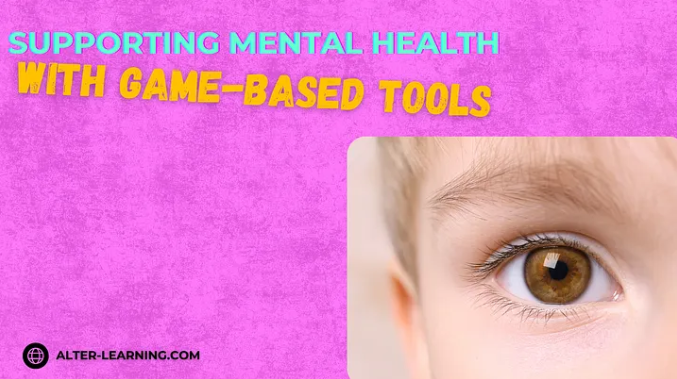Conversations about education often center on academic achievement, but student well-being is just as important. Anxiety, stress, and social pressures can create barriers that keep students from fully engaging in learning. Schools are increasingly recognizing that mental health support must go hand-in-hand with academic instruction.
Game-based tools can offer an innovative way to support emotional well-being. Through immersive learning environments, wellness-focused activities, and interactive STEAM educational games, Alter-Learning explores how technology can play a role in building resilience, emotional intelligence, and confidence in learners.
Why Mental Health Matters in Education
When students are emotionally supported, they are better able to:
- Stay focused and engaged in class,
- Develop stronger relationships with peers,
- Handle setbacks with resilience,
- Build confidence in their ability to learn and succeed.
Addressing mental health in schools is not a distraction from academic goals—it can be the foundation that makes academic growth possible.
How Games Can Support Emotional Growth
Unlike traditional instruction, games create safe spaces for exploration, reflection, and growth. Well-designed educational games can:
- Include collaborative challenges that promote teamwork and social skills,
- Encourage self-regulation by requiring patience, persistence, and strategy,
- Provide non-judgmental feedback, helping students see mistakes as opportunities to improve,
- Integrate wellness-focused activities, such as breathing exercises or mindfulness prompts, into gameplay.
These mechanics can make mental health support feel natural rather than forced, blending seamlessly with learning goals.
Examples of Mental Health in Practice
Alter-Learning’s Wellness Center demonstrates how digital platforms can offer supportive environments. Through personalized activities, creative tools, and cooperative games, students can:
- Build emotional awareness and social skills,
- Practice problem-solving in a stress-free environment,
- Strengthen confidence by celebrating small successes,
- Engage with peers in ways that reduce isolation.
Other interactive platforms may include features such as journaling tools, choice-driven narratives that encourage reflection, or VR simulations that let students practice empathy and perspective-taking.
Supporting Teachers and Families
Mental health support works best when it involves educators and families as partners. Game-based platforms can help by:
- Providing teacher dashboards that track emotional as well as academic progress,
- Offering resources for parents to reinforce positive strategies at home,
- Building collaborative spaces where educators, students, and families share in activities that promote well-being.
This holistic approach ensures that mental health is woven into the broader fabric of learning, not treated as an isolated concern.
Accessibility and Inclusion in Mental Health Tools
To be effective, game-based mental health supports must be accessible to all learners. That can mean:
- Adding difficulty settings that reduce frustration,
- Incorporating audio cues or colorblind options for inclusivity,
- Designing multiplayer options that promote connection for students who feel isolated,
- Embedding activities for diverse needs, ensuring students of all backgrounds feel supported.
When accessibility is prioritized, mental health tools can reach more students and make a stronger impact.
Mental Health as a Core Part of Education
Supporting mental health is not just an “extra” in education—it can be a foundation for success. With interactive STEAM learning, XR educational content, and wellness-focused environments, Alter-Learning demonstrates how games can nurture not only academic growth but also emotional resilience and well-being.
By blending play with purpose, game-based tools can help students discover that learning can be joyful, supportive, and empowering. And when mental health is supported, education becomes not just preparation for tests, but preparation for life.
Follow Alter-Learning for more insights into immersive education, edtech success stories, and the future of learning. Want to explore how VR/AR could transform your school or learning platform? Let’s connect.



